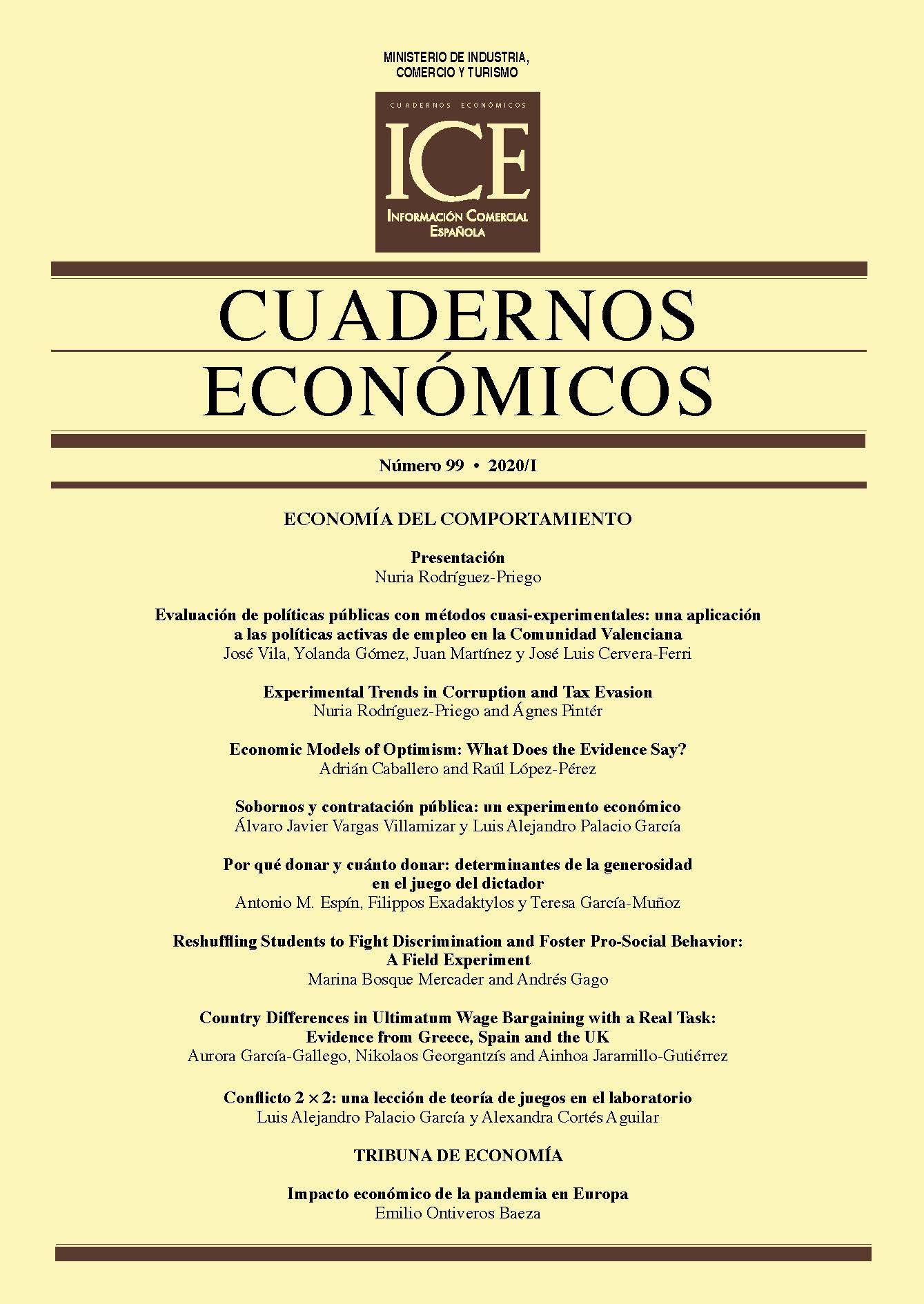Bribes and Public Procurement: an Economic Experiment
##plugins.themes.bootstrap3.article.sidebar##
Downloads
##plugins.themes.bootstrap3.article.main##
The present research aims to determine whether tender specifications generate incentives for the delivery of bribes in public procurement. In this sense, the objective is to analyze how bureaucratic discretion and asymmetries of information affect the level of bribe delivery and the discrimination of bidders in a public contract auction. To achieve this, an economic experiment in the laboratory was conducted, in which the experimental design simulated an auction for public contracts under four treatments. It was found that information asymmetries are a useful tool to reduce the delivery of bribes and that there is negative discrimination by the bureaucrat when assigning contracts. Therefore, it was concluded that the power of the bureaucrat to choose over the admission of the participants to the auction is the main trigger for the delivery of bribes.
##plugins.themes.bootstrap3.article.details##
- Luis Alejandro Palacio García, Alexandra Cortés Aguilar, 2x2 Conflict Game: A Game Theory Lesson in the Laboratory , Cuadernos Económicos de ICE: No. 99 (2020): ECONOMÍA DEL COMPORTAMIENTO


